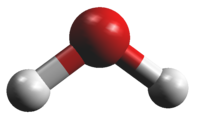|
The dataset and the fit have been decribed in detail
in
(1) S. Brünken, H. S. P. Müller, C. Endres, F. Lewen,
and T. Giesen, B. Drouin, J. C. Pearson, and H. Mäder,
2007, Phys. Chem. Chem. Phys. 9, 2103.
The dataset contains extensive v2 = 0 and 1
pure rotational data both with microwave and with infrared accuracy
as well as extensive rovibrational transitions between these states.
Details on the Hamiltonian can also be found in that paper.
Besides from (1), ground state transitions measured with
microwave accuracy, which were retained in the final line list,
were taken from
(2) J. K. Messer, F. C. de Lucia, and P. Helminger,
1984, J. Mol. Spectrosc. 105, 139;
and from
(3) F. Matsushima, M. Matsunaga, G. Qian, Y. Ohtaki,
R. Wang, and K. Takagi,
2001, J. Mol. Spectrosc. 206, 41.
Excited state data were taken from (1), (2),
and from
(4) O. I. Baskakov, V. A. Alekseev, E. A. Alekseev, and
B. I. Polevoi,
1987, Opt. Spectrosc. 63, 1016.
Ground state (far-) infrared transitions were published
in
(5) J. W. C. Johns,
1985, J. Opt. Soc. Am. B 2, 1340;
in
(6) R. Paso and V.-M. Horneman,
1995, J. Opt. Soc. Am. B 12, 1813;
and in
(7) G. Mellau, S. N. Mikhailenko, E. N. Starikova, S. A.
Tashkun, H. Over, and V. G. Tyuterev,
2004, J. Mol. Spectrosc. 224, 1340.
Excited state data were also taken from that work.
Rovibrational data were provided in
(8) C. Camy-Peyret, J. M. Flaud, A. Mahmoudi, F. Guelachvili,
and J. W. C. Johns,
1985, Int. J. Infrared Millimeter Waves 6, 199
;
and in
(9) R. A. Toth,
1999, J. Mol. Spectrosc. 195, 98;
additional rovibrational data were taken from (1), where
also additional assignments were given for transition
obtained in the course of the investigations for (9).
With respect to the Jan. 2007 entry, the gup
values have been corrected and a small typographical error in the
dipole moment has been corrected. The version number has been
retained.
With respect to the Nov. 2007 entry, some highly accurate
ground state transition frequencies with D hyperfine splitting
were added to the line list. These were published
by
(10) G. Cazzoli, L. Dore, C. Puzzarini, J. Gauss,
2010, Mol. Phys. 108, 2335.
Transitions deviating by more than 5 time the experimental
uncertainties were omitted from the final fit. These are
some FIR and IR lines, some of which may be perturbed.
The final parameter set deviates slightly from the ones
used in (1) and, for the hyperfine parameters, (4).
Furthermore, an updated reference was used for the
rotationless dipole moment.
Positions of multiply measured lines were averaged for the merged
catalog file.
The partition function takes into account both vibrational states.
Individual non-zero contributions are given in parentheses.
At lower temperatures, it may be necessary to distinguish
between ortho-D2O and para-D2O.
The ortho and para levels are described by
Ka + Kc = even
and odd, respectively, with a spin-weight ratio of 2 : 1. The
JKaKc = 101
level is the lowest para state.
It is 12.1170 cm–1 above ground.
Therefore, separate
para and
ortho predictions are available up to about
100 cm–1 along with separate
para and
ortho partition function values. Note:
the spin-weight of 2 for the separate ortho predictions
has been eliminated.
The rotationless dipole moment comes from
(11) R. Bhattacharjee, J. S. Muenter, M. D. Marshall,
1991, J. Mol. Spectrosc. 145, 302.
No centrifugal distortion corrections have been employed in the current
calculation. This will have small, usually negligible effects for
ΔKa = 1 transitions, in particular
for not too high values of J and Ka.
In the case of transitions with larger ΔKa
predicted intensities should be viewed with more caution.
|
